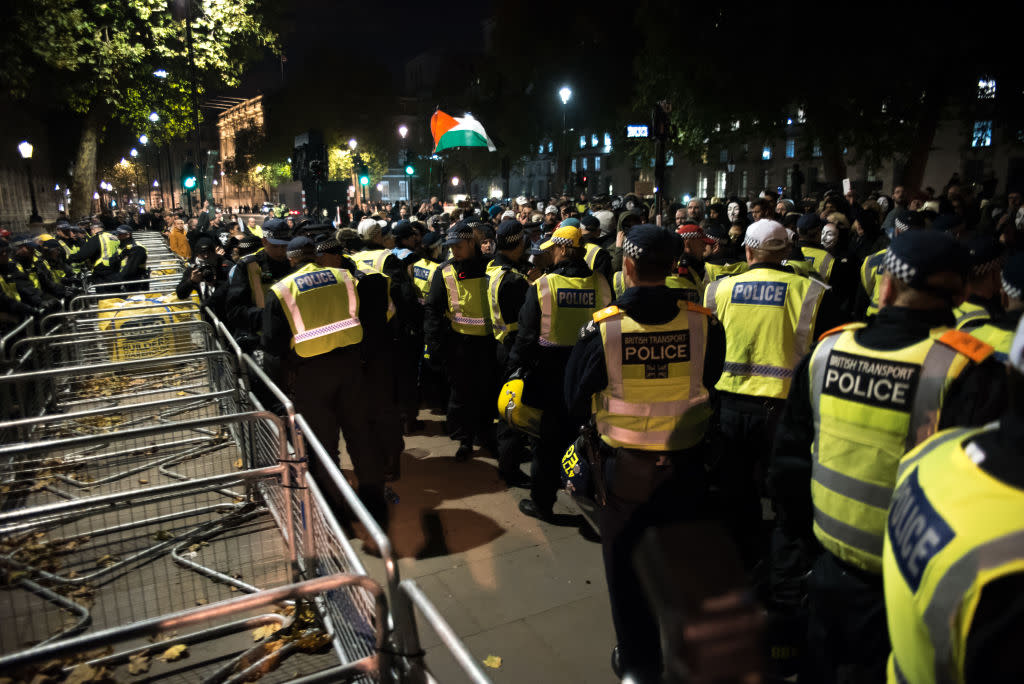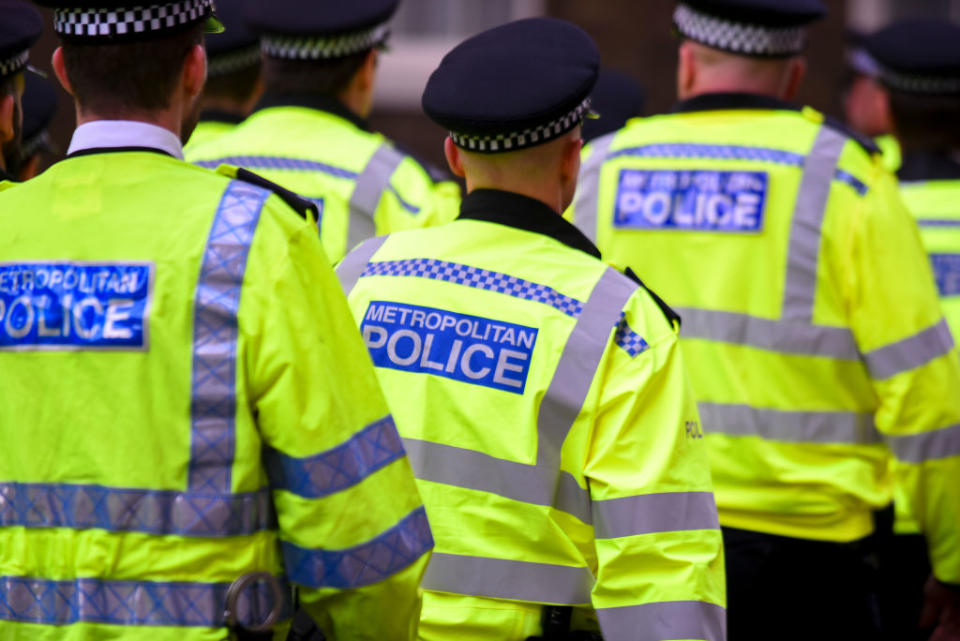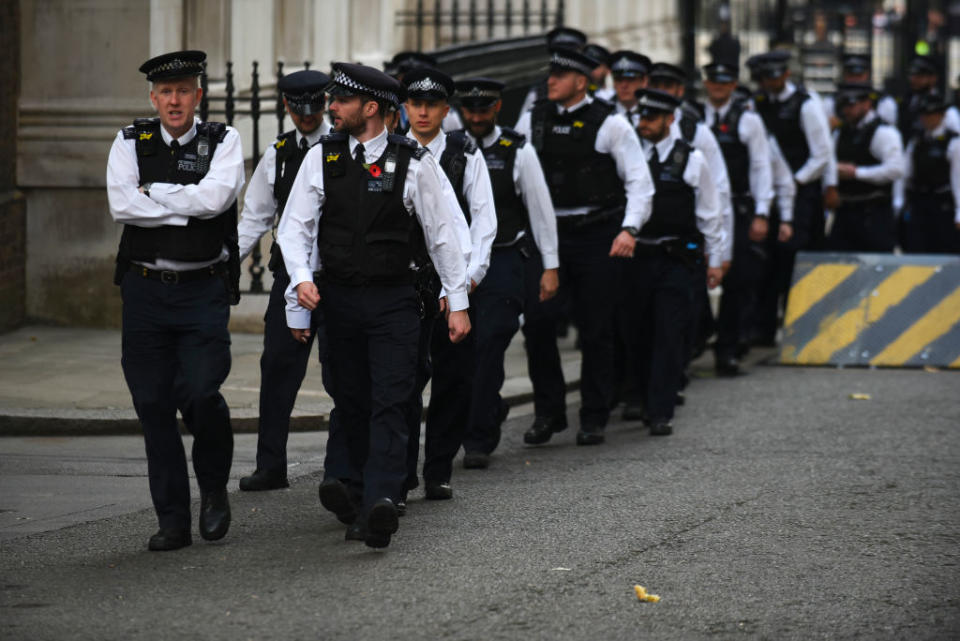People are hanging up when they call the police because it takes so long to answer

Police forces are so understaffed some members of the public are hanging up the phone because it takes too long to get through.
The findings have emerged in a report outlining concerns that police are leaving “low priority” incidents and crimes unresolved for long periods or without a response at amid concerns
Inspectors said they have come across examples where nothing is done to investigate offences including violence and criminal damage.
That’s according to the latest report by Her Majesty’s Inspectorate of Constabulary and Fire and Rescue Services (HMICFRS), which says that an increased drop in spending is having a ‘negative effect’ on response to crime.
While crime rates are at an all time high, the number of police officers in the UK is at its lowest level since 1985 – and is predicted to drop by another 120,217 in the same period of time.
As a result, officers are working longer hours and taking on extra shifts, causing a rise in long-term sick leave and mental illness.
But despite officers making up the man hours by staying late, the report suggests it’s still impossible for forces to follow up every crime.

Inspector Mike Cunningham, who conducted the report, says that in some cases not deemed to be an emergency, ‘nothing [is] done at all.’
‘Prioritisation might not be an up-front say no but that’s what actually happens,’ he added. ‘Some types of incidents trump others, and quite properly too.
‘Under austerity and under cut-backs, the requirement to prioritise has become more acute in recent years.
‘Often forces are using an assessment of the threat, harm and the vulnerability of the person calling.
The report found that police control rooms were so stretched that 999 and low-priority 101 callers in Devon and Cornwall were left waiting so long they eventually hung up.
The report says that, generally, forces are managing their resources well despite ‘increasingly complex crime and changing demand.’
However, it noted that in some instances, particularly in instances of violence, nothing was being done to combat the problem.

Mr Cunningham insisted this was due to ‘errors by individuals’ rather than a systematic failure.
The report also highlighted that the ‘significantly stressed’ force need to shape up the way they use technology in order to assist people faster.
They also need to adapt to deal with issues like domestic violence and modern slavery, Mr Cunningham continued.
Mr Cunningham said in Devon and Cornwall some low priority 999 callers were being left waiting on the line for so long that they eventually hung up.
Last month a senior Scotland Yard officer suggested it was ‘not practical’ for officers to spend large amounts of time investigating offences like shoplifting or criminal damage.
According to the police inspectorate, the combined police spending across the UK will be £12.3bnin 2017/18, but that is projected to fall by 6% to £11.6bn by 2020/21.
Despite police chiefs insisting they’ll need at least £400m more each year to keep up with rising crime levels, Home Secretary Amber Rudd has said she does not want them ‘reaching for a pen to write a press release asking for more money’.
READ MORE:
Met Police holding children in custody for too long, says prison watchdog
Senior counter-terror police officer to be charged under Official Secrets Act
Essex Police shows injuries suffered by police officers as it asks for more protections
Out of the 42 police forces inspected for the report, only two were rated as ‘outstanding’ – Durham and Thames Valley.
10 were found to be in need of improvement, including the Metropolitan Police, Nottinghamshire, North Yorkshire and South Yorkshire.
None were recording as failing.
Policing Minister Nick Hurd said: ‘The government recognises that demand on the police is changing and we are sensitive to the pressures they face. That is why I am leading a review of demand and resilience, as well as assessing how forces can improve efficiency, increase productivity and make prudent use of over £1.6bn of financial reserves.’
HMICFRS said this figure was not accurate, and that £1.4bn was more realistic. It added that two thirds of that number had already been allocated and the remainder would be used in the case of terrorist attacks or other emergencies.
Sara Thornton, chair of the National Police Chief’s Council, said: ‘We’ve made £1.6bn efficiency savings in the last five years and predict we’ll save another £0.9bn in the next five. This is at a time when HMIC recognises policing is under significant stress from rising demand, and reported crime that is increasingly complex with force budgets due to fall in real terms over the next three years.’
Figured from 2015 show that the UK spent £119 per capita on the police service, compared with £163 in Denmark, £207 in the Netherlands and £215 in Germany.

 Yahoo News
Yahoo News 
